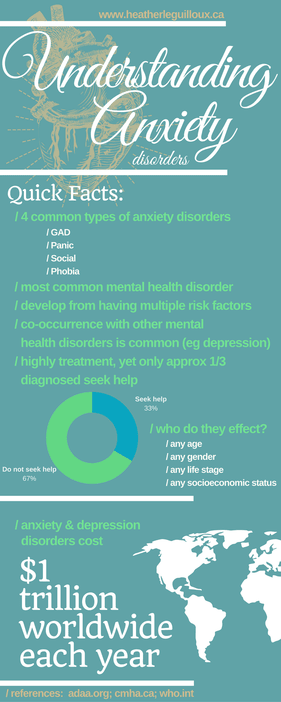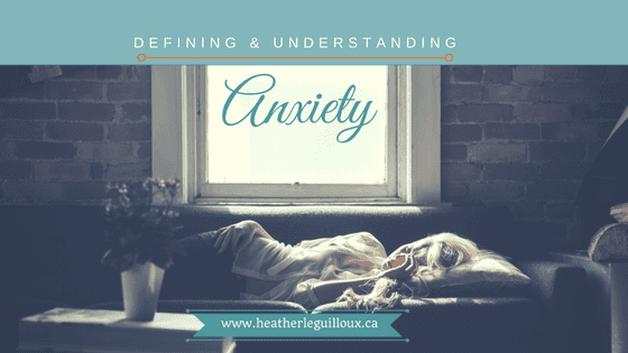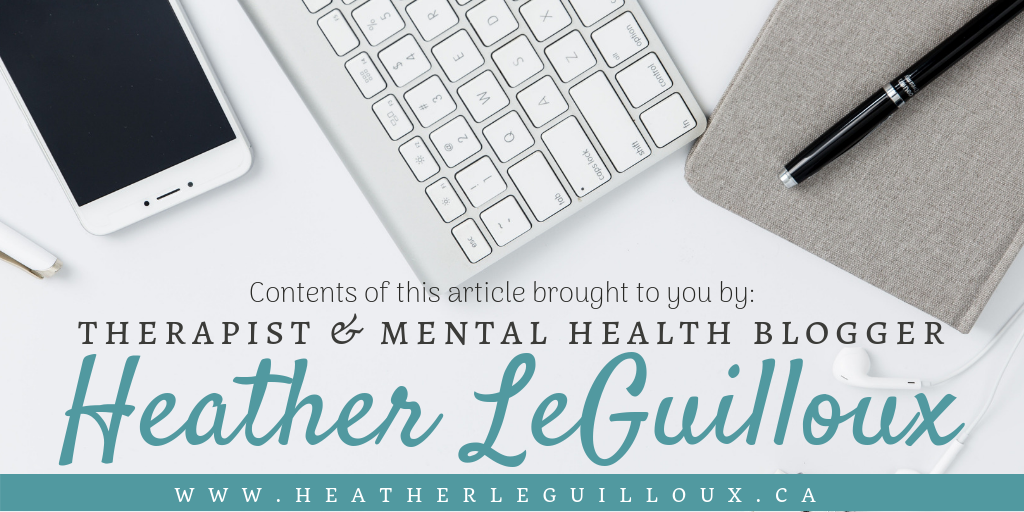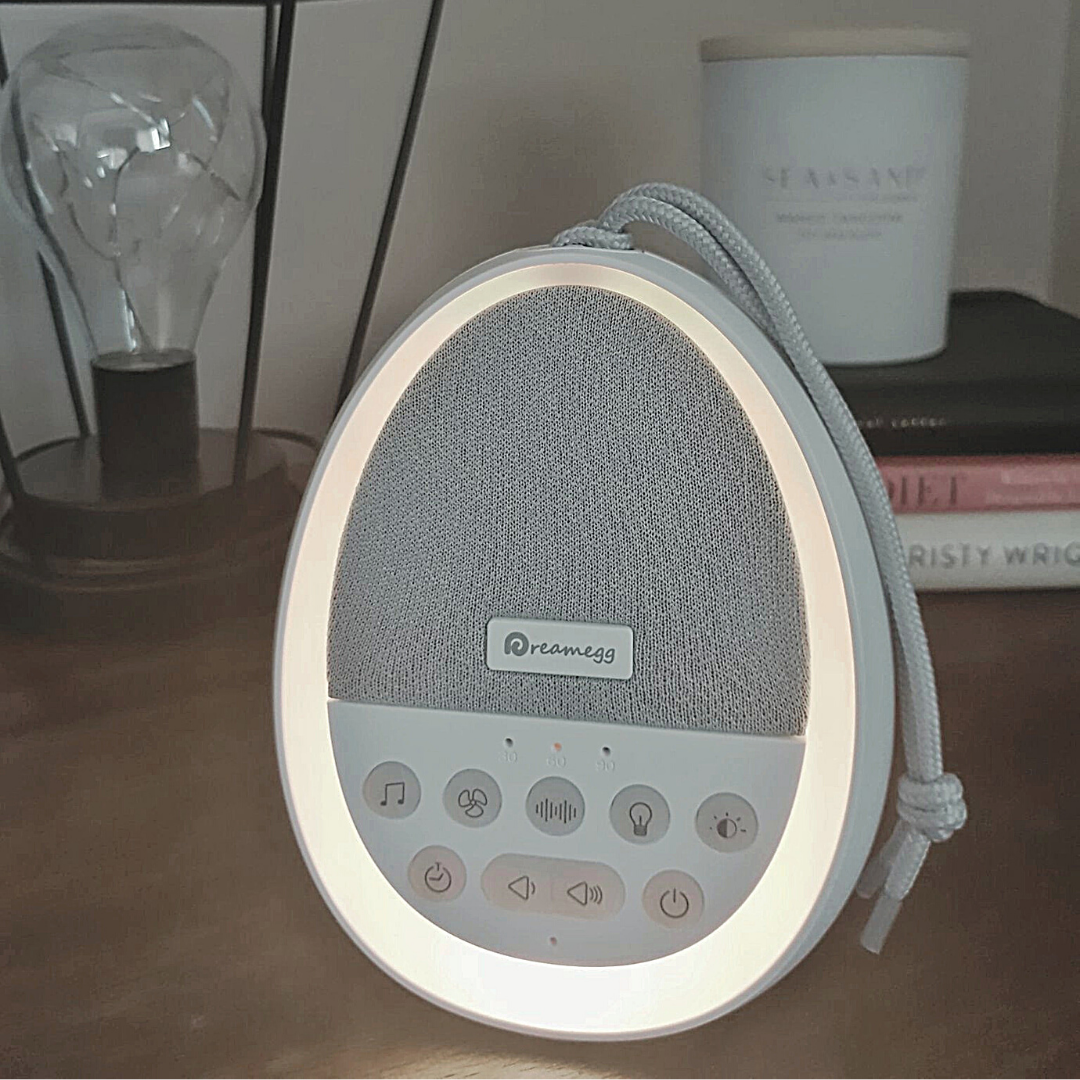|
|Have you ever experienced an unexpected increase in heart rate, sweaty palms, shortness of breath, a feeling as if your chest is being pushed in by some unforseeable force and a sudden need to quickly get away?
If you have, it's possible, and very likely, that these symptoms relate to an experience of anxiety, or even panic. Although they feel unpleasant at the time, these sensations are actually a normal part of the fear-response that is hardwired into the human brain, designed to help us react in situations of danger.
Please note: This article does not contain healthcare or therapeutic advice. If you are concerned about your health or well-being, speak with a health professional or visit your nearest medical facility in an emergency.
MENTAL HEALTH RESOURCE VAULTGreat!Check your email for instructions on how to access the Members Only Resource Vault. Anxiety: Defining & UnderstandingWhen a potentially dangerous stimulus is presented (for example, meeting a bear on stroll through the forest) a series of automatic signals are sent by our brain to activate our sympathetic nervous system. Chemicals activated by this process immediately sends our body into action, so that we're prepared in case we are required to fight off this threat, or retreat by running away or finding a safe place to hide. A psychological response also happens in this moment, as our minds focus on the task of surviving this ordeal. It can feel as if your mind goes 'blank' in this moment, as all focus is on that of survival. You may have heard of the 'fight-or-flight' response and that is exactly what happens during this anxiety-induced situation. In evolutionary terms, this response was necessary for the survival of our species. However, in the present day, we are less likely to require this automatic fear response system, except in situations of real danger. Individuals who often experience anxiety when a real threat is not present may develop what is known as an anxiety disorder. The symptoms of anxiety disorders are similar to the fear response described above, but happen more frequently and over longer periods of time, and can cause negative or even debilitating impacts on a persons life.
An anxiety disorder can be described as an internal perception of certain situations as more of a threat than in actuality, thus activating the fear response. Anxiety disorders are generally developed as a result of biological, psychological, or individual factors. Some of these factors may include:
Biological factors:
Psychological factors:
Individual factors:
Please note this is not an exhaustive list of reasons for the development of an anxiety disorder, and proper assessment through a doctor or mental health professional is required for diagnosis. Supporting an individual with anxiety:"One of the most frustrating things about having an anxiety disorder: Knowing as you're freaking out that there's no reason to be freaked out. But lacking the ability to shut the emotion down." ~Anonymous
It is important to note that everyone experiences anxiety in their own way, and the psychological impact of feeling anxious but not being able to fully explain how real and tangible this invisible threat feels to them, can feel morally defeating. Likewise, being unable to manage or calm this fear response can cause unimaginable pain and frustration for people who suffer from anxiety disorders.
Offer support, or simply an ear to listen, when someone reaches out for help with an anxiety problem. Encourage the person to seek professional help from their doctor or mental health professional and reassure them that they are not alone with these feelings. Let them know that having support can help them to feel better and find ways to manage these concerns. 
More facts about anxiety:
In this series of posts focusing on anxiety, we will next look at the four most common types of anxiety disorders, then we will consider the impact and consequences of experiencing anxiety for those live with anxiety every day, and finally we will explore the treatment options and roads to recovery that are available.
I hope you continue on this journey of discovery about anxiety, something that effects us all in some way and may impact yourself or someone you know a great deal. It can be helpful to have an understanding or know the cause of a mental health concern such as anxiety in order to know how to offer help and support to someone who is struggling with these concerns, or to seek help for yourself. If you feel comfortable sharing, I would also be interested in hearing your own experiences of anxiety in the comment section below. If you or someone you know would like more support for the anxiety you experience, please contact support services near you for more support or visit the Helpful Links page. References: adaa.org; cmha.ca; who.int; anxietybc.com
Some links on this page are embedded with affiliate links which I may be compensated for at no extra charge to you. Start your own blogging journey here.
6 Comments
1/15/2017 03:19:11 pm
Thank you for this information. I did not know much about this.
Reply
3/5/2020 01:33:42 pm
You're very welcome, I'm glad it was helpful to learn more about anxiety. Be sure to check back for new content each week!
Reply
1/15/2017 03:56:31 pm
This is quite informative especially on how to relate with and support anyone having this disorder plus being able to identify the traits in individuals. Really nice post.
Reply
3/5/2020 01:34:38 pm
I'm glad you found this post informative, Jessica. Be sure to check the blog for new content added weekly. :)
Reply
3/5/2020 01:35:30 pm
Hi Felicia, I'm glad you found this article helpful. I have many other articles on the topic of anxiety if you would like to learn more!
Reply
Your comment will be posted after it is approved.
Leave a Reply. |
Welcome to the blog!↓ That's me, Heather. :)
MENTAL HEALTH RESOURCE VAULTGreat!Check your email for instructions on how to access the Mental Health Resource Vault. Categories
All
Popular Posts// 25 Positive Mindset Quotes
// Self-Care Bullet Journal Spreads // 7 Ways Your Physical Health is Connected to Your Mental Health |




 RSS Feed
RSS Feed
















